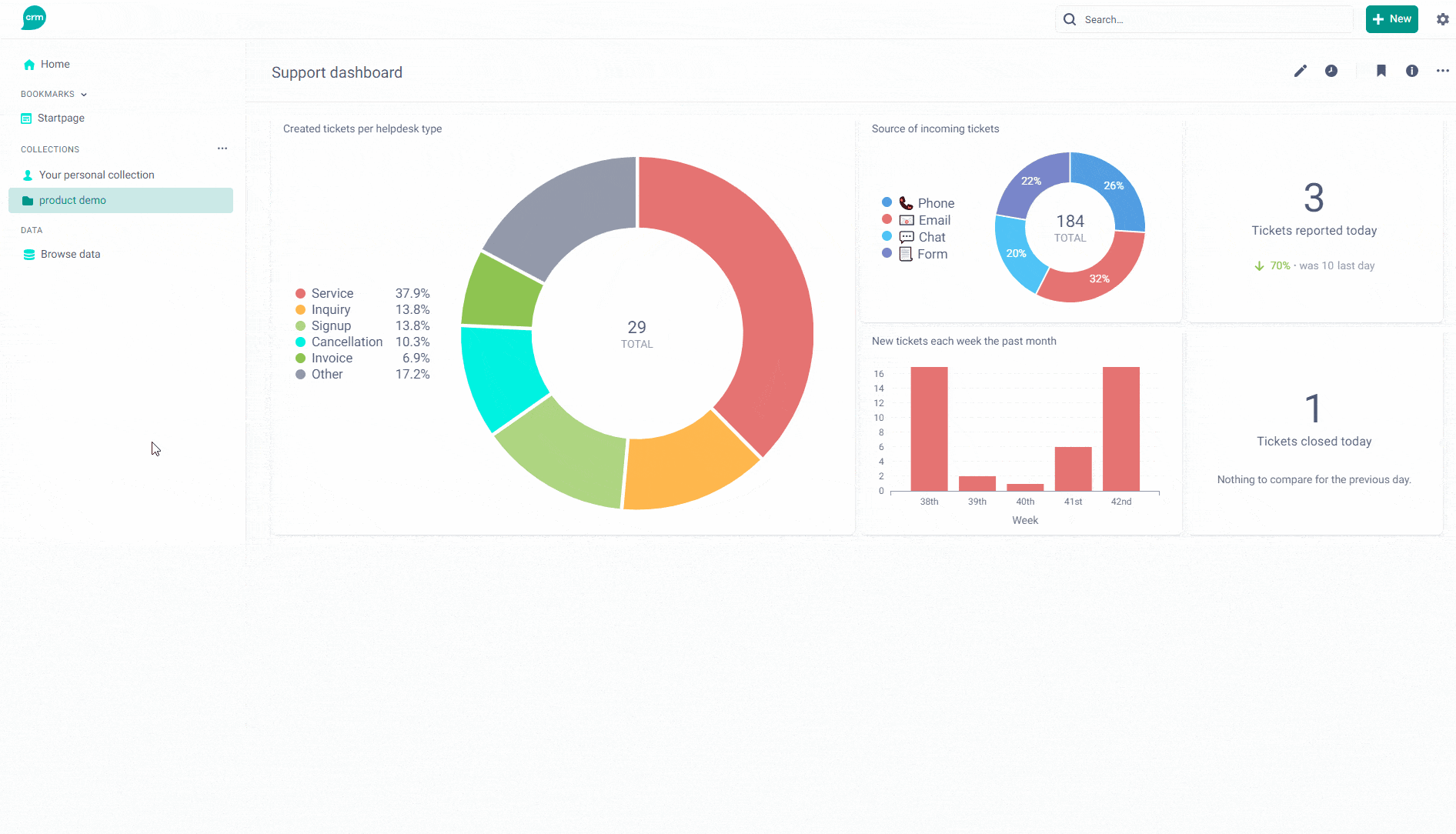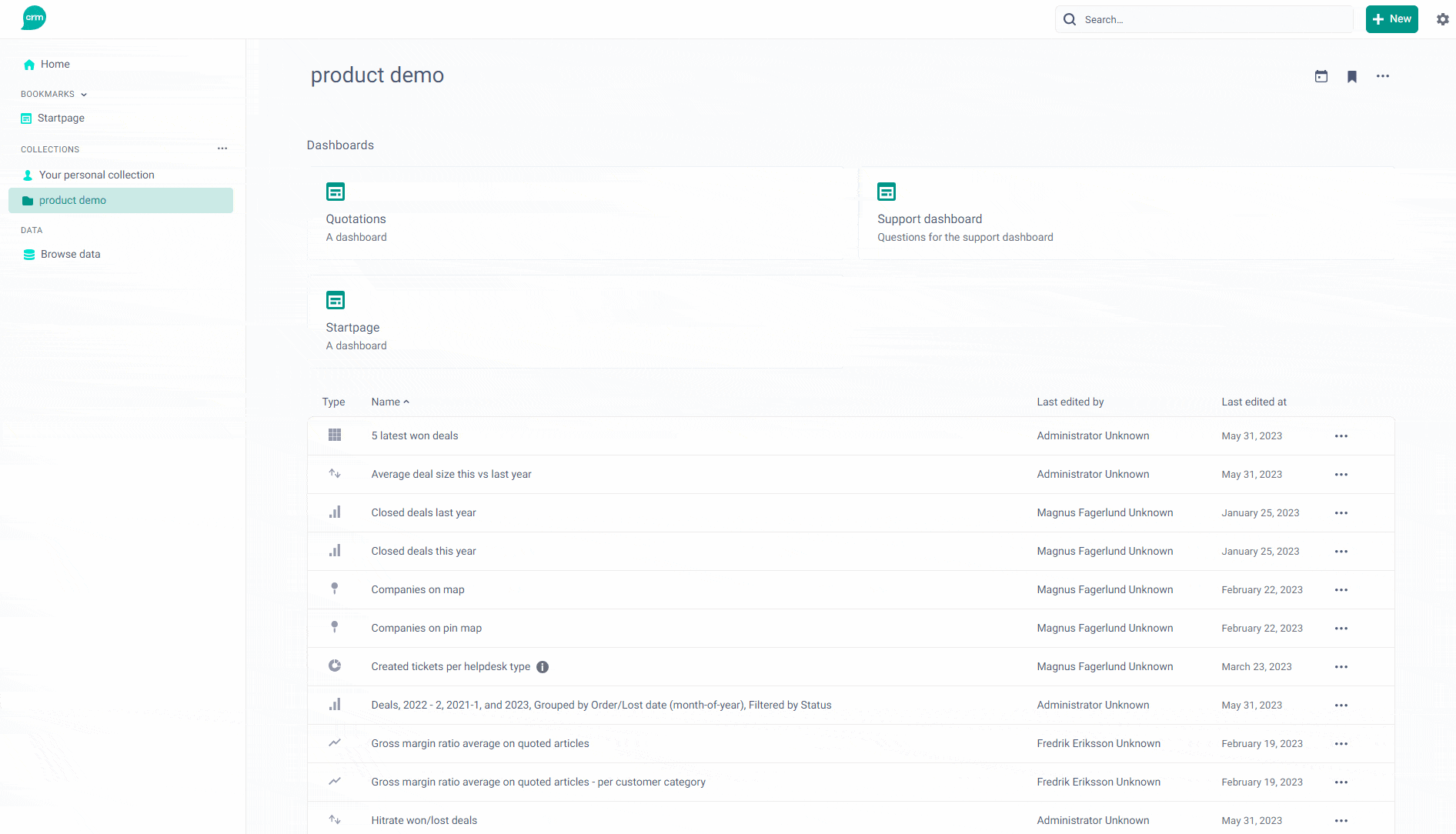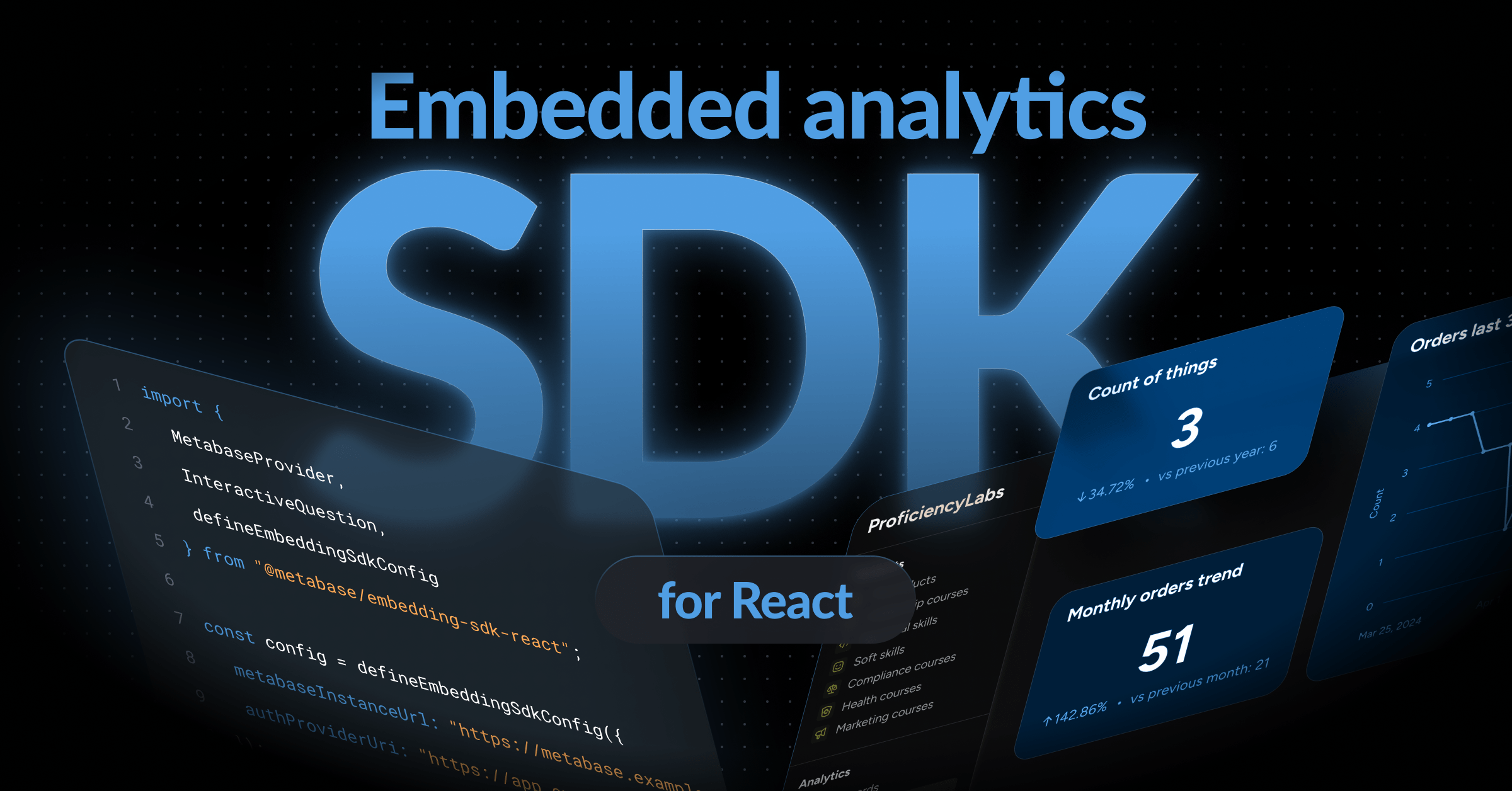The Challenge: Lime Technologies had lots of data in their own Lime CRM application that they were analyzing with a complex BI-tool. However, the whole setup was too complicated, and they were looking for a way to make it easier for their teammates to dig into the data.
The Solution: They came across Metabase and quickly realized that it offers the same vision Lime Technologies follow - to make it easy for people to access their data. They set Metabase up and it quickly became a tool to use across many teams.
The Results: Metabase became not only their main internal tool for data analysis, but also a platform to provide Lime Technologies customers with data insights.
"White-labeling Metabase was a perfect fit for us at Lime Technologies. Why? The whole essence of our CRM software is simplicity and efficiency. Metabase follows the same principles, and it makes it easy for our customers to make sense of their CRM data and make strategic decisions.
"
Magnus Fagerlund
Product Marketing Manager
Over the years Lime Technologies has delivered their different CRM-solutions to over 6000 companies. Currently, they have over 400 employees. Unlike other CRM suppliers in the market, Lime sells, delivers, develops, and supports their software themselves, without any intermediaries.
Because Lime Technologies uses their own product, they’re able to quickly learn what’s working and what’s not. In their own CRM, they have lots of data: sales information (pipeline management, forecasts) and support information (number of tickets, tickets clustering, categories performance). Previously, Lime used a large, complex BI-tool to analyze all that data, but that tool required an engineer to create dashboards. For those without the technical skills to use the software, insights were hard to come by.
Lime learned about Metabase by chance, but quickly understood that it was exactly what they were looking for. Not only was Metabase easy to use, but they also could relate to Metabase’s approach: make the data available to everyone. Metabase’s vision for making data more approachable was something the Lime Technologies team also relied on in their own product.
The data
Lime Technologies uses SQL-databases to store all data (one SQL database per customer) in Lime CRM. Since the unique selling proposition with Lime CRM is to provide custom solutions, data models are unique to each customer. All customer-facing tables and columns in the Lime CRM SQL database are synced to Metabase and automatically classified according to data type, which makes it easier for people to ask their own questions.
Lime Technologies started with an open source version of Metabase. They got that up and running internally and realized they could put Metabase in the hands of their sales and support managers without having to send a request for specific BI engineers to build the reports. That was a turning point.
The number of people who could ask questions internally at Lime went from a handful of technical persons to department managers across all departments.
Lime used Metabase to visualize:
- Sales forecasts (Sales department)
- Ticket closing rate over time (Support department)
- Consultant utilization over time (Consultant department)
- Inbound lead statistics (Marketing department)
Lime quickly understood that their customers would benefit from Metabase too. At the time, Lime had been using a complex BI add-on to Lime CRM, but the whole setup was overly complex. It required their customers to have an additional Windows server, and customers never got traction due to the complexity.
Now, as a part of their CRM offering, Lime Technologies’ “Lime BI” uses a white-labelled Metabase to prepare dashboards and questions their customers would like to answer. Customers can also buy the full Lime BI add-on to get the full power of Metabase, which lets them as ask new questions of their data without involving any Lime Technologies consultants.
Since Lime CRM is tailor-made for various customer types, usually depending on industry, the data and visualizations customers benefit differs from customer to customer. The flexibility in Lime CRM as a product pairs well with the flexibility in Metabase.


Sales:
- Won deals this vs. last month
- Average deal size this vs. last year
- Hitrate won/lost deals
- Total forecast next six months
- Total forecast next twelve months vs goals
- Won deals vs. sales budget this year
Support:
- Closed tickets this vs. past year/month
- Top ticket categories
- Time spent per ticket over time
- Coworker who closed the most tickets
Marketing:
- Leads this month
- MQLs this month
- Conversion rate MQL → SQL
- Hit rate SQL → Won deals
- Leads lifecycle per month
The Results
When Lime Technologies adopted Metabase, they first had three or four people who would use it. Now fifty people have access to the tool, mostly managers from different departments (support, sales, and more). Internally, the benefit was huge; Metabase unlocked the power of the data for more people.
Metabase has done the same for the Lime Tech customers, providing more value to their customers. Lime BI is now most often included in new customer implementations with a couple of default questions/dashboards, but a lot of the customers also see the extended value in the full Lime BI add-on. Lime BI makes it possible to upsell to an existing customer base, and it gives Lime an edge in new sales.
Advice for others
White-labeling Metabase can add a lot of value to your product offering. And using Metabase internally gives you a better understanding of that value, which makes it easier to communicate to customers. Having a team of sales reps that actually use the product they are selling in their everyday life is unbeatable.











